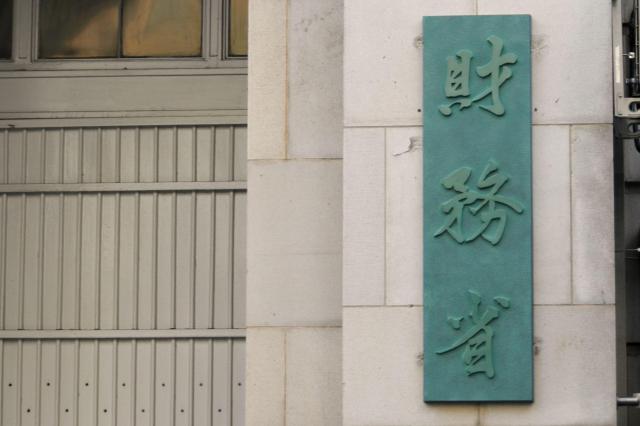なぜ日本株の長期上昇を予想するのか、金融面の専門的議論から説明してみたい。
日本のメディアが出してくる経済関連記事は木を見て森を見ずの論調が多く、ロジックや数字の根拠の代わりに、印象論や感情論に訴えるケースが少なくない。読み手は無用な悲観論を聞かされて何となく不安になる。財政破綻論などもいまだに根強くはびこっている。
そこで外部の目の助けを借りることにした。日銀や財務官僚の優秀さをわかっているアメリカ人の書いた記事である。
財政破綻論の嘘
面倒な議論は要らない。次のグルーグマンの一節が言いつくしている。
We know that advanced economies with stable governments that borrow in their own currency are capable of running up very high levels of debt without crisis.” (Paul Krugman)
安定した政府の下で自国通貨建ての借り入れを行う先進国経済は、大きな債務を抱えても危機は発生しないことがわかっている。(ポール・クルーグマン)
当たり前の話だが、日本は無借金経営の会社と同じで外部からお金を借りているわけではない。旦那と奥さんの間で負債と資産を付け替えているだけである。それも理由があってそうしている。それは以下の記事から抜粋翻訳するので、読み進めていけば追々理解してもらえると思う。
なぜ日本は財破綻しないのか?
- Japan is a homogeneous society, with relatively egalitarian income and wealth distribution, and hence, pain has been shared fairly evenly, thus preserving economic and societal coherence.
日本は均質社会で世界的に見ても所得や富の格差が少ない。痛みは均等に負担されるので経済的・社会的統一性は揺るがない。 - Japan maintained credibility by selectively boosting and adjusting national commitments to elderly and medical care while irregularly pushing up consumption tax. Although some of these measures were counter-productive on a longer-term basis, they have placated global markets.
日本は断続的に消費税率を引き上げ、高齢者やメディケアへの予算配分を増やすことで国際信用を維持してきた。高齢者優遇措置は長期的には非生産的とも言えるが、とりあえず世界市場を納得させることには成功している。 - Japan borrows in its own currency and the bulk of JGB holders are Japanese residents (over 88%). This massively reduces the degree of external vulnerability.
日本は自国通貨建てで借り入れを行っており、日本国債の保有者の大半は日本人である(88%以上)。このため外部からの価格変動圧力がほぼ存在しない(=資本調達コストが安い)。 - BoJ has been exceptionally aggressive in driving money supply up and cost of capital down. This aggressiveness coincided with the growing global disinflationary trend, which eroded bond yields and significantly reduced the proportion of the government spending that is spent financing interest commitments.
日銀は、資金供給の増大と資本コストの低減に関して例外的な積極性を発揮してきた。世界的なディスインフレ(インフレ→デフレ移行)圧力が高まるなか、果敢な金融緩和を通じて債券利回りの低下と利払い負担の圧縮に成功した。
日本金融の先進性
QEs associated with the Fed were invented in Japan more than a decade earlier. The same applies to fiscal stimuli, collapsing velocity of money and strong disinflation. Whatever are the policies, Japan has already tried them.
Japan is far more advanced in fully monetizing its debt by utilizing multiple asset classes, from bonds to equities. It also accepts that normalization is not feasible, and unlike the Fed, it has no illusions that rates could ever rise or that immigration and deep labour market reforms are either possible or desirable.
When the US is focusing on returning outdated factories, Japan is building for the future, when labour inputs would no longer be the key.
日銀がQEを発明したのはFRBの10年以上前である。日本の先進性は、財政刺激策、貨幣の流通速度の停滞への対処、強力なディスインフレ状況への対応などについても当てはまる。実際どのような対策をとるかに関係なく、日本はすでにすべてを実験済みの国なのである。
とくに日本は債務の完全なマネタイズ(国債や様々な資産クラスの有価証券の買い入れによるマネー供給)に関しても、はるかに他国に先んじている。
また日本は、財政収支の正常化が望むべくもないことを認識している。FEDと違って金利は上がらねばならないとも考えていないし、移民受け入れなど大がかりな労働市場改革が可能だという幻想も抱いていない(=今後はAI、自動化、社会関係資本の充実などの経済貢献度が高まるから)。
アメリカはいま、老朽設備の工場を自国へ戻すことに躍起になっている。その傍らで日本は、労働力の増強が鍵を握らない未来に向けて動いている。
負債(債務)のマネタイズとは?
…the central bank may purchase government bonds by conducting an open market purchase, i.e. by increasing the monetary base through the money creation process. If government bonds that have come due are held by the central bank, the central bank will return any funds paid to it back to the treasury. Thus, the treasury may “borrow” money without needing to repay it. This process of financing government spending is called “monetizing the debt.”
中央銀行は公開市場操作を通じて、信用創造によりマネタリーベース(ハイパワード・マネーとも)を増やして政府発行の国債を買い入れる。償還期限の来た国債を中銀が保有している場合、その額面を中銀の資産勘定から国庫に付け替える。これは国庫が支払い義務のないカネを「借りる」のと事実上同じである。この政府支出の財源づくりを「負債(債務)のマネタイズ」という。
クリモネ:日銀の実情は国債購入(GDP比ほぼ100%)に留まらない。社債やETFを通じた株式の買い入れも行っている(社債市場の15%、ETF市場の75%)。すべては2011年震災以降のデフレ圧力を解消する努力であり、実際に、国の総需要と国民一人当たり収入を安定的な横ばいに維持している。もし政府の介入がなければ日本経済が巨大なデフレスパイラルに嵌まっていたことは明白だろう。
今後の世界的な黄昏時代を生き延びる戦略は日本発
The growth rates have compressed massively, but the country managed to maintain its overall aggregate demand and per capita income intact.
日本の成長率は大幅に押し下げられたが、国の総需要と国民一人当たりの収入はほぼ横ばいに維持されている。
We expect BoJ to quietly abandon its inflation targets while maintaining flexibility in asset acquisitions to keep cost of finance close to zero. This would be a recipe for continuing twilight for years to come, with debt burden neither derailing the economy nor financial markets, even as BoJ assets rise beyond 100% of GDP (~45%+ of JGBs).
日銀は、様々な資産購入を駆使して資本の調達コストを限りなくゼロに維持しながら、そっとインフレターゲットを取り下げるのではないかと予測する。今後世界を訪れる景気後退局面(twilight)を乗り切るには、たとえ日銀の保有資産額がGDPを超えることがあっても、経済や金融市場が債務に足元をすくわれないようにすることの方が大事だからである。
The objective in Japan is to maintain per capita income rather than generating growth to accommodate a rising population and keeping society intact. The extent to which Japan would be able to achieve this objective would depend critically on Japanese corporates and its overall economy maintaining productivity gains.
日本の目標は、人口増加による経済成長よりも、社会状況を悪化させることなく、国民一人頭の収入を維持するところに置かれている。どの程度目標を達成できるかは、日本企業の頑張りと、国全体の生産性をどのくらい向上させられるかにかかっている。

言葉足らずの日本政府だが少しは信用しよう
どうだろうか?日本の金融当局は国内で言われているような無能者の集まりでないことは自明だろう。むしろ世界の先頭を走ってきたのだ。少子高齢化の問題も同じで、日本が先頭を切って対策をしなければならない。でも物事には優先順位があり、いまは国民一人頭の年収維持が至上命題なのだ。
たとえば、安倍政権が強力に推進している働き方改革もその文脈上にある。先進諸国を今後襲うだろう黄昏時代への対応をいち早く準備するという狙いがあるわけだ。生産性を引き上げることで「今より貧しくならない日本」を維持することが重点課題なのだ。政府も財務省ももっとちゃんと国民に説明すればいいのに、といつも思う。
そちらに目処がつけば、少子高齢化対策に本腰を入れ始めるだろう。


